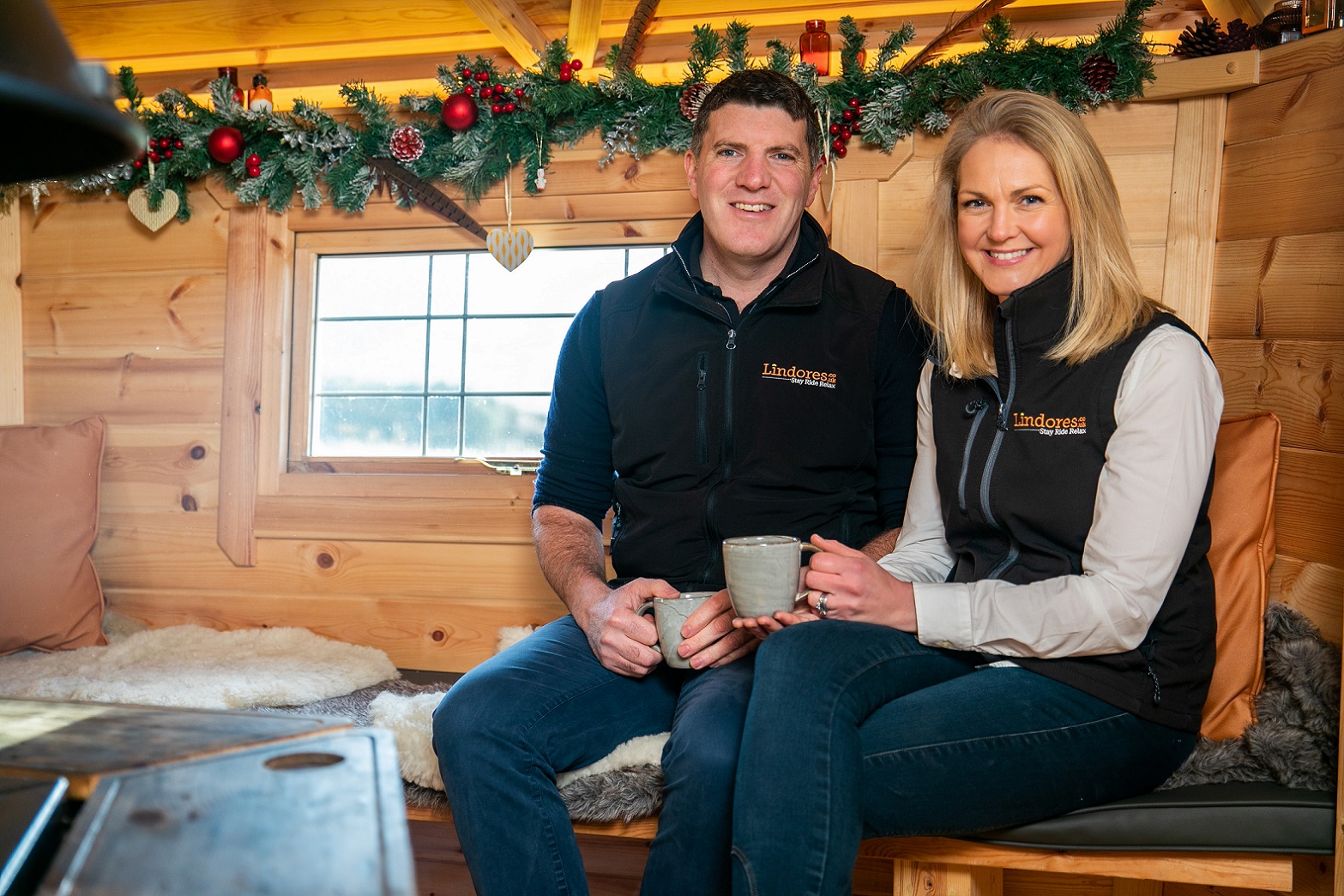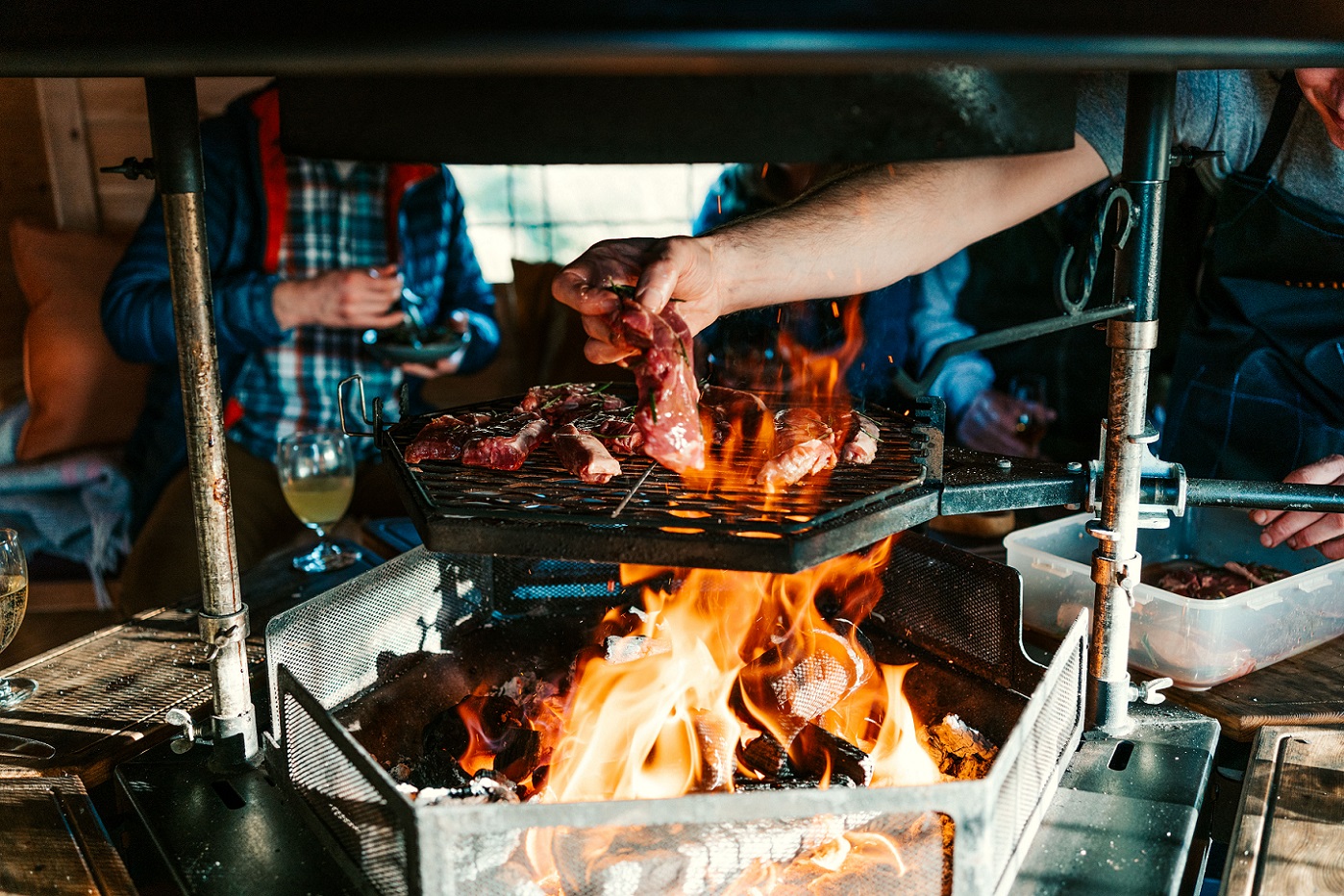How they got started
They decided to build Lindores Lodge, a holiday rental property, on the land. At the time, they were advised they might achieve a 51% occupancy, but it quickly exceeded this target. This gave them the confidence to build and develop another three sites.
In 2020, they partnered with a local chef, Andrew Wilkie, to offer catering for guests. This was their first entry into food and drink.
They started with supper boxes, delivered to guests. The menu was very short, offering classic dishes that proved clear winners with visitors. This gave them the confidence to look at expanding their food and drink offering.

